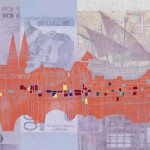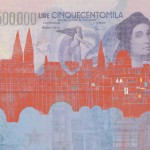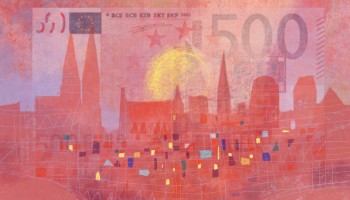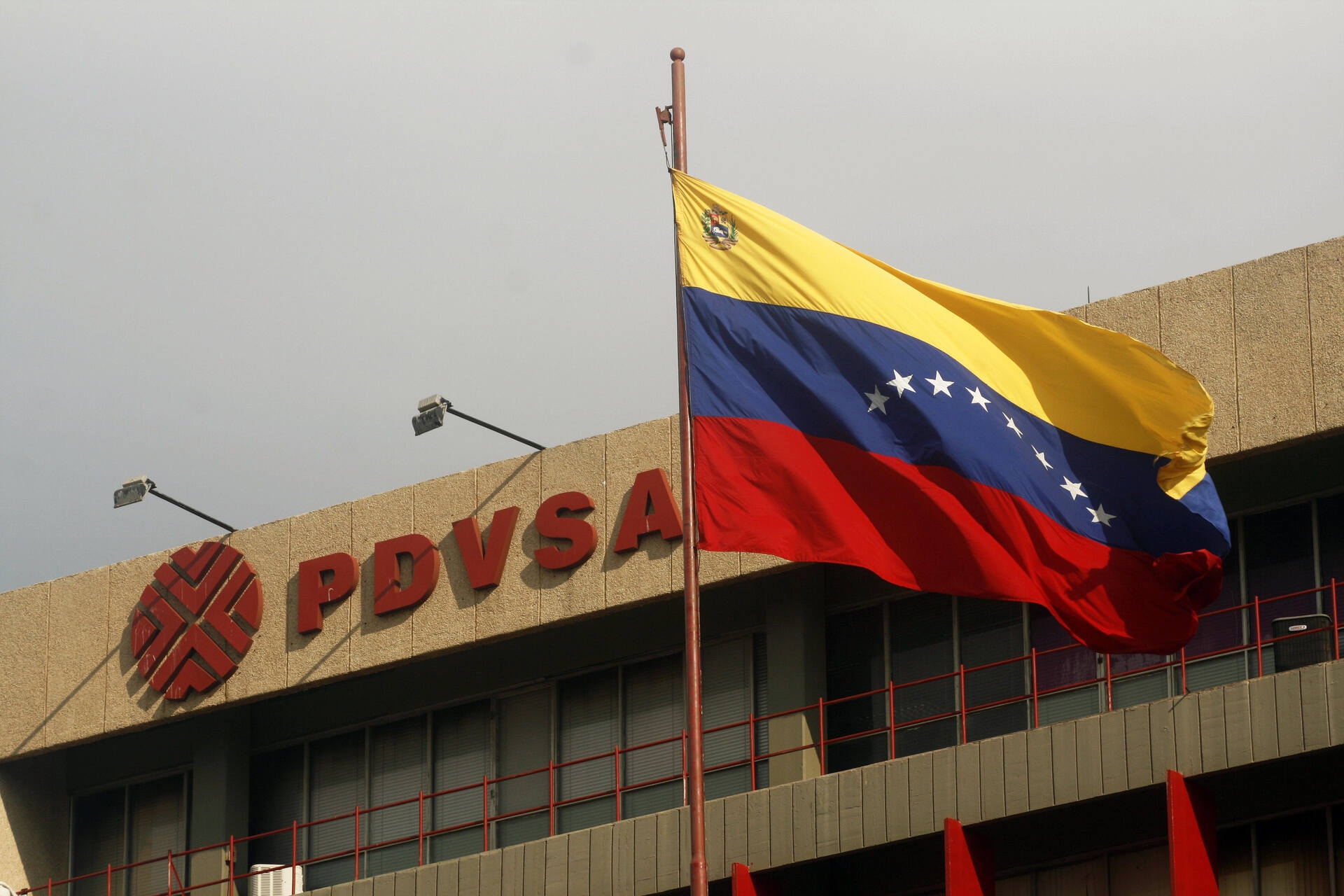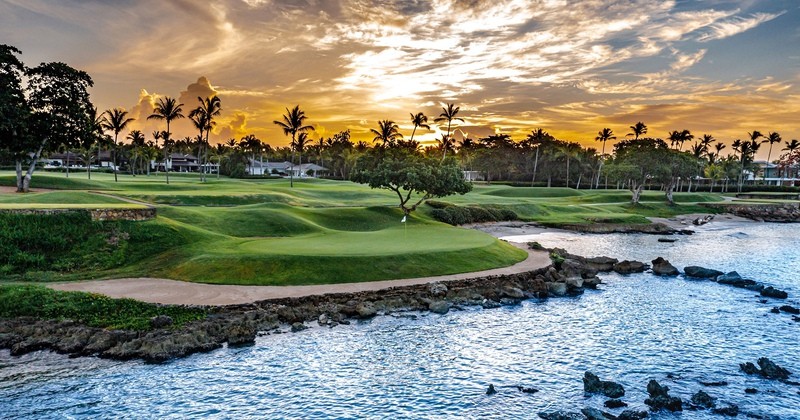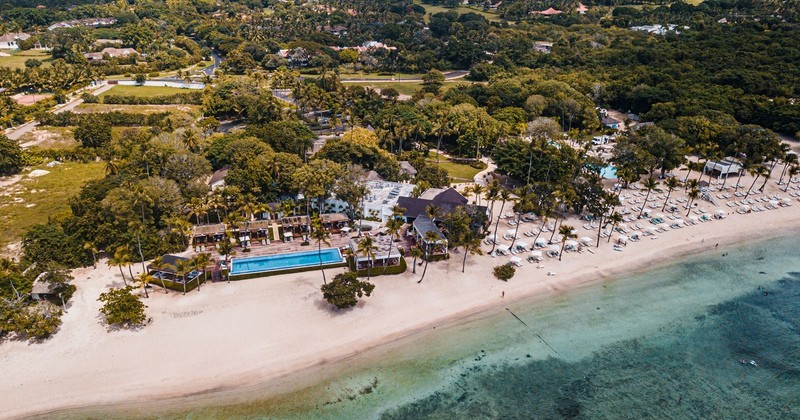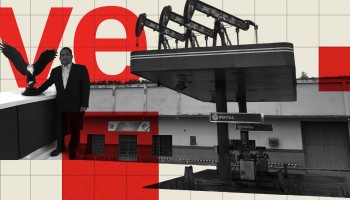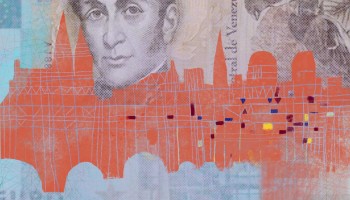More than three years after prosecutors in the tiny European nation of Andorra charged dozens of people with receiving over $2 billion that had been plundered from Venezuela’s state oil company, where exactly the money ended up remains a mystery.
Now journalists may have found some of it. Documents from the OpenLux project show that three of the alleged conspirators, including a former deputy minister and his longtime romantic partner, invested millions of dollars in luxury Caribbean properties at the time of the apparent scam.
The Andorran case alleges that hundreds of millions were stolen from Petróleos de Venezuela, known as PDVSA, between 2006 and 2016, then laundered through Banca Privada d’Andorra (BPA). Prosecutors say part of the money, including bribes paid in exchange for contracts with PDVSA and other Venezuelan state energy companies, was funneled into the accounts of 30 people.
Among them were Venezuela’s former deputy electricity minister, Javier Alvarado Ochoa, and his girlfriend, Cecirée Casanova, who worked for a government-owned power company. Also on the prosecutors’ list was a mysterious middleman named José Luis Zabala.
Analysis of the Andorran prosecutors’ documents show that at least $32.7 million passed through BPA accounts associated with Alvarado, while another $21 million or more moved through Zabala’s accounts. Exactly what happened to all this money remains unclear.
But reporters discovered that Zabala and Casanova had ties to shell companies in Luxembourg and Panama, which were used to purchase a five-star hotel in the Colombian coastal city of Cartagena, and villas in an exclusive resort in the Dominican Republic.
Casanova, Zabala, and Alvarado were all under investigation in the U.S., Spain, and Andorra at the time of the transactions.
BPA closed down in 2015, after the U.S. Treasury Department accused the bank of laundering illicit funds from Venezuela, China, Russia, and Spain. Authorities in Andorra filed a suit against BPA in 2018 after a six-year investigation, but the complex case has stalled.
“The defendants have hired the biggest law firms, the biggest experts, and that is why it has not progressed as fast as we would like,” said Zair Mundaray, a former Venezuelan prosecutor.
The case is sensitive, because it could “expose officials from Andorra itself, and that makes transparency very difficult,” added Mundaray, who fled Venezuela in late 2017 and now lives in Colombia.
Casanova, Zabala, and Alvarado did not respond to requests for comment.
About OpenLux
Cartagena Connection
The Anandá Boutique Hotel sits in the heart of the old city of Cartagena, a Unesco World Heritage Site lined with colorful buildings on Colombia’s northern coast. Visitors can lounge in a jacuzzi on the terrace overlooking the Caribbean Sea. Housed in a 16th-century mansion, the Anandá’s 23 rooms rent for up to $272 a night.
The Anandá is owned by Inversiones Calle del Cuartel S.A, a Colombian branch of a Panamanian company named after the street where the boutique hotel is located.
But a Luxembourg company called Sirena International S.A. took over the majority of Inversiones’ shares in 2015, which at that time were worth more than $2.1 million.
Zabala held positions in both of these companies: He has co-owned Sirena International since 2013, while both he and Casanova sat on the board of directors of Inversiones until November 2020.
Reporters uncovered documents suggesting the purchase of the Anandá may be linked to Casanova's partner Alvarado's former role as Venezuela's deputy minister for electrical development.
U.S. prosecutors allege he was one of the main conspirators in a scheme that awarded about $1 billion in energy contracts in return for kickbacks. The indictment, filed in 2019, says the conspirators disguised the payments using fake loans, and a network of companies and intermediaries.
The prosecutors allege Alvarado used his senior position in PDVSA to solicit bribes in return for handing out lucrative contracts. Alvarado also served as president of Electricidad de Caracas, which was incorporated into the National Electric Corporation (Corpoelec) where Casanova worked as a human resources manager.
In 2008, when Alvarado was in charge, Corpoelec hired Venezuelan energy consultancy Asincro which was ultimately paid a total of $23 million to manage a power generation project.
While Ascrino is not named in the court cases, OCCRP found links between the energy company and the Anandá hotel that raise questions about whether the transfer of the hotel shares was connected to these contracts.
For one thing, several senior executives from Asincro –– Hans Carlos Hermann, Ignacio Villegas Grelis, and Gustavo Ramón Sol López –– had held shares in Inversiones since 2007.
Inversiones’ sister company in Colombia also shared an office in Bogotá with Asincro, according to records from a 2016 board meeting attended by Casanova.
Alejandro Rebolledo, a Venezuelan lawyer and anti-money laundering expert, said the “unusual” setup should be investigated.
“Casanova and her partner Alvarado had important positions in the energy industry,” he said. “They may have used their influence to give the contracts in exchange for being part of the other business in Panama. This should be analyzed and investigated by authorities.”
Casanova’s interest in the Anandá hotel was first reported by Spain’s El Pais newspaper. But Zabala’s role as the director of the Luxembourg company that took over majority ownership has not previously been revealed. Nor have details about the transfer of the hotel shares, or the involvement of Asincro executives.
One of them, Sol, told Armando.info he did not know Casanova and Zabala, and that they had been invited to join the board of Inversiones by his colleagues, Herrmann and Villegas. They did not reply to requests for comment.
Sol said that although he spent 12 years at Asincro, he only worked in Venezuela for a brief period and did not know Alvarado.
‘Millionaire’s Paradise’
Described in Condé Nast Traveler as a "paradise for millionaires" on the Dominican Republic’s southeast coast, Casa de Campo has it all. The gated resort community boasts a polo field, three golf courses, a marina, several white sand beaches, and even an amphitheater that can seat 5,000 people.
There are hundreds of villas and mansions scattered across the 2,800-hectare luxury development –– and as of July 2021, three of them were owned by Panamanian companies where Casanova is a director. Panama does not make public the ultimate beneficiaries of companies.
One of two properties purchased in 2017 is a 2,600-square-meter mansion with seven bedrooms, a swimming pool, and a Jacuzzi. The property is advertised to tourists to rent for $2,500 per day.
Those 2017 purchases, which totalled $1 million, followed one four years earlier, when one of the companies directed by Casanova bought a 1,374-square-meter villa (OCCRP was not able to determine the purchase price of this property.). The properties were purchased through three Panamanian companies now directed by Casanova: Biamar Worldwide, Las Cañas 39 Inc., and Barranca Este 21 Inc.
The source of Casanova’s wealth is unclear. But Andorran prosecutors zeroed in on more than $250,000 in suspicious funds she received in her BPA account in 2010 and 2011, which had been funneled through shell companies.
They include a $50,000 payment her Panamanian firm Left Zeppelin received in 2011 from Josland Investments, a company represented by another former Venezuelan deputy electricity minister, Nervis Villalobos. Records from Andorran prosecutors also show payments of $50,000 and around $16,600 to her firm from Zabala’s Panamanian company, Greentrail International.
The same year Alvarado’s Panamanian firm, Lairholt Finance Limited, started receiving a total of $8 million from Josland Investments.
Those payments –– and many others –– were allegedly facilitated by BPA Serveis, the Andorran bank’s customer recruitment department. Prosecutors say BPA helped Venezuelan elites set up an “offshore corporate structure with no other purpose than concealment.”
Experts say that offshore companies are often used to launder funds through real estate.
“Exclusive areas in the Dominican Republic are a paradise, like Venezuela in many ways,” said Rebolledo, the Venezuelan anti-money laundering expert.
“These types of high value properties are usually sold with the whole structure — companies in Luxembourg, Panama, or in another tax haven that mask the real beneficiary owner. They buy the whole structure, transfer shares, and the money is wired separately.”
'The Right to the Truth'
So far, Alvardo, Casanova, and Zabala have managed to avoid prosecution over their alleged involvement in the Venezuelan corruption scheme.
Casanova’s partner, Alvarado, faces charges in Andorra and Spain. Both the U.S. and Venezuela have requested he be extradited to face charges in those countries too, but he has so far managed to remain in Spain, where he holds citizenship.
Zabala is the most mysterious of the three. Seldom mentioned in public reports, Andorran prosecutors say he played the role of a middleman, and they have linked him to several other members of the alleged bribery and money laundering network.
One of the suspects is Omar Farías Luces, who allegedly made his fortune by buying contracts from PDVSA and other state institutions. Companies in his name in Spain share registered offices with firms connected to Casanova and Alvarado. Prosecutors say that Farías transferred more than $3 million to Zabala’s personal account.
Andorra has charged Zabala with money laundering. He is on the lam and little is known about him –– except for the scant clues reporters found in the paper trail he left behind.
Mundaray, the former Venezuelan prosecutor, said he hopes the Andorran case gets back on track, so that details of the corruption scheme are exposed to the public.
“It is a very important issue, because of the historical account and the right to the truth,” he said in an email. “The victims, who are all Venezuelans, have the right to know what happened to our capital.”
Sol Lauría (Concolón), Adolfo Berríos (Concolón), and Daniel Salazar (OCCRP ID) contributed reporting.

